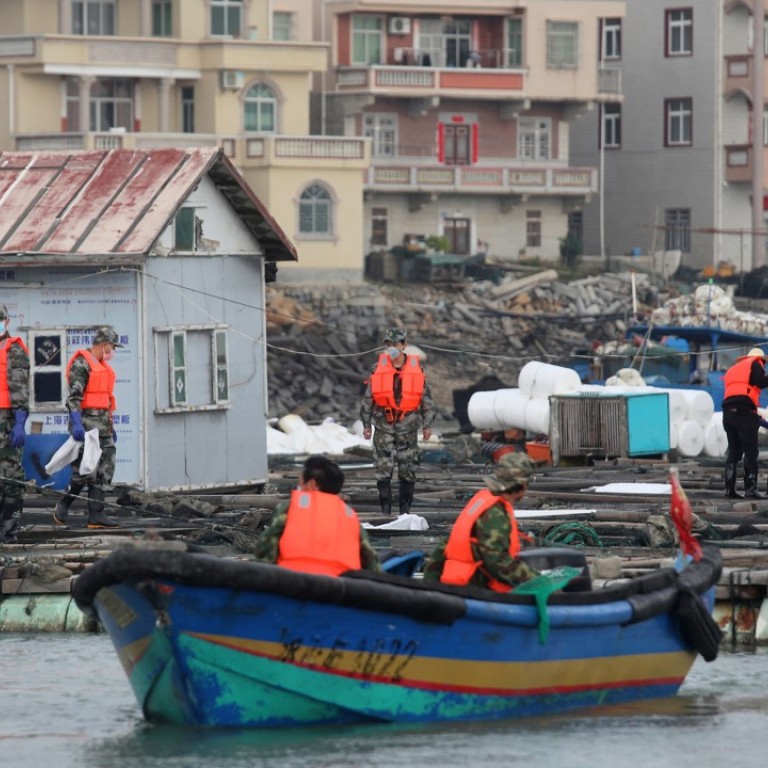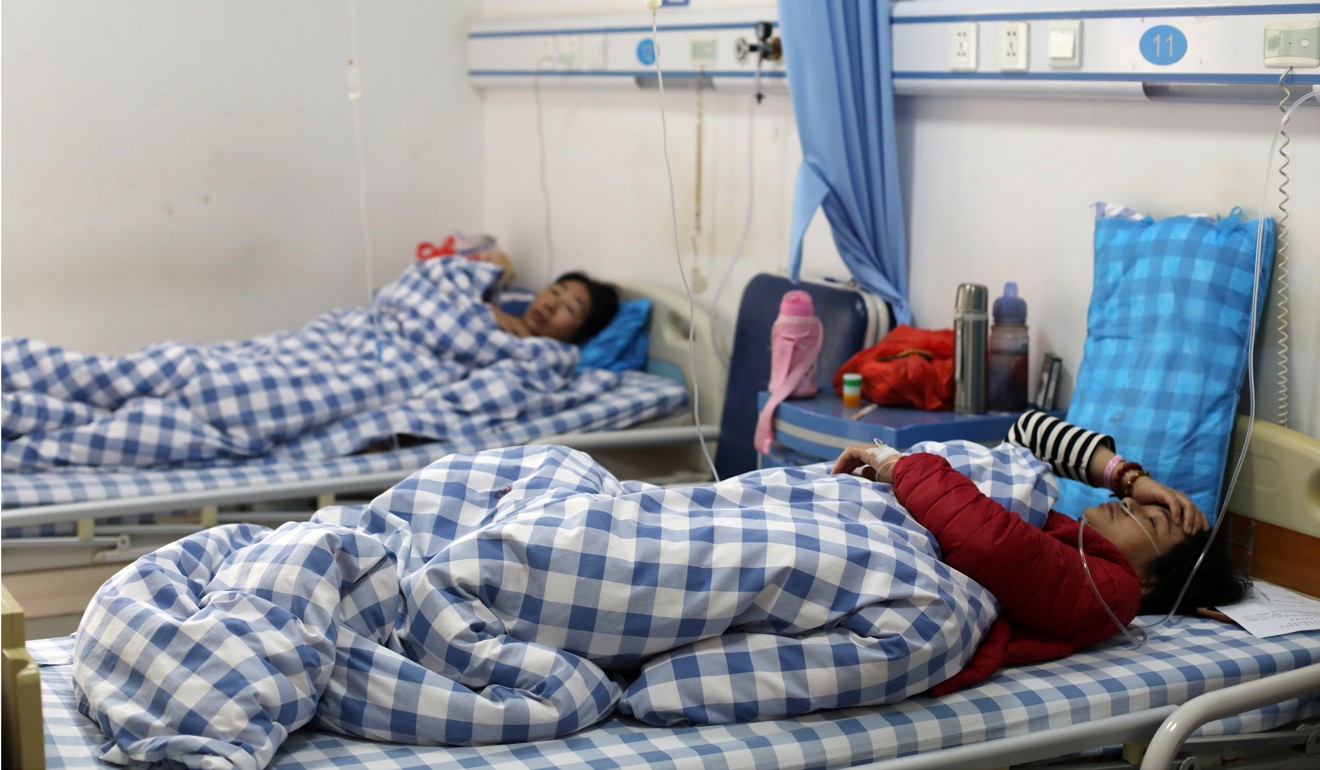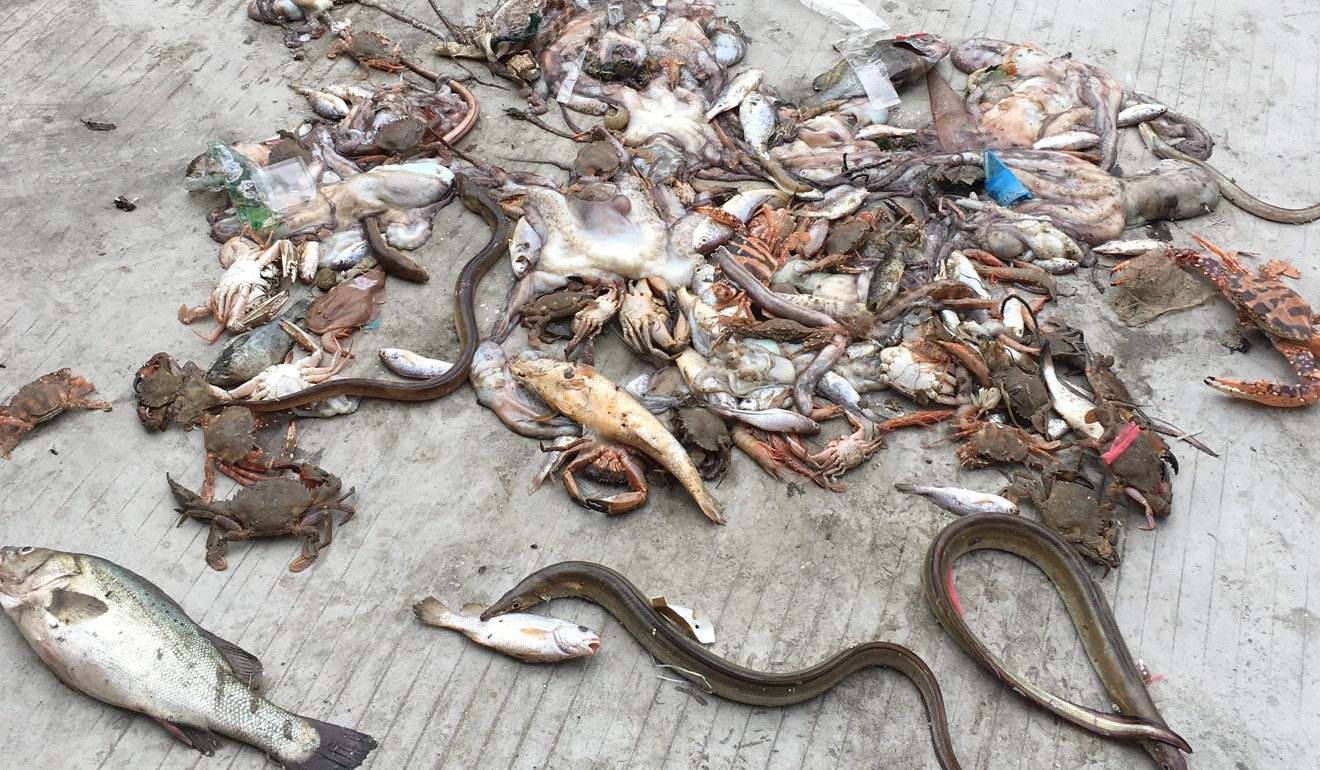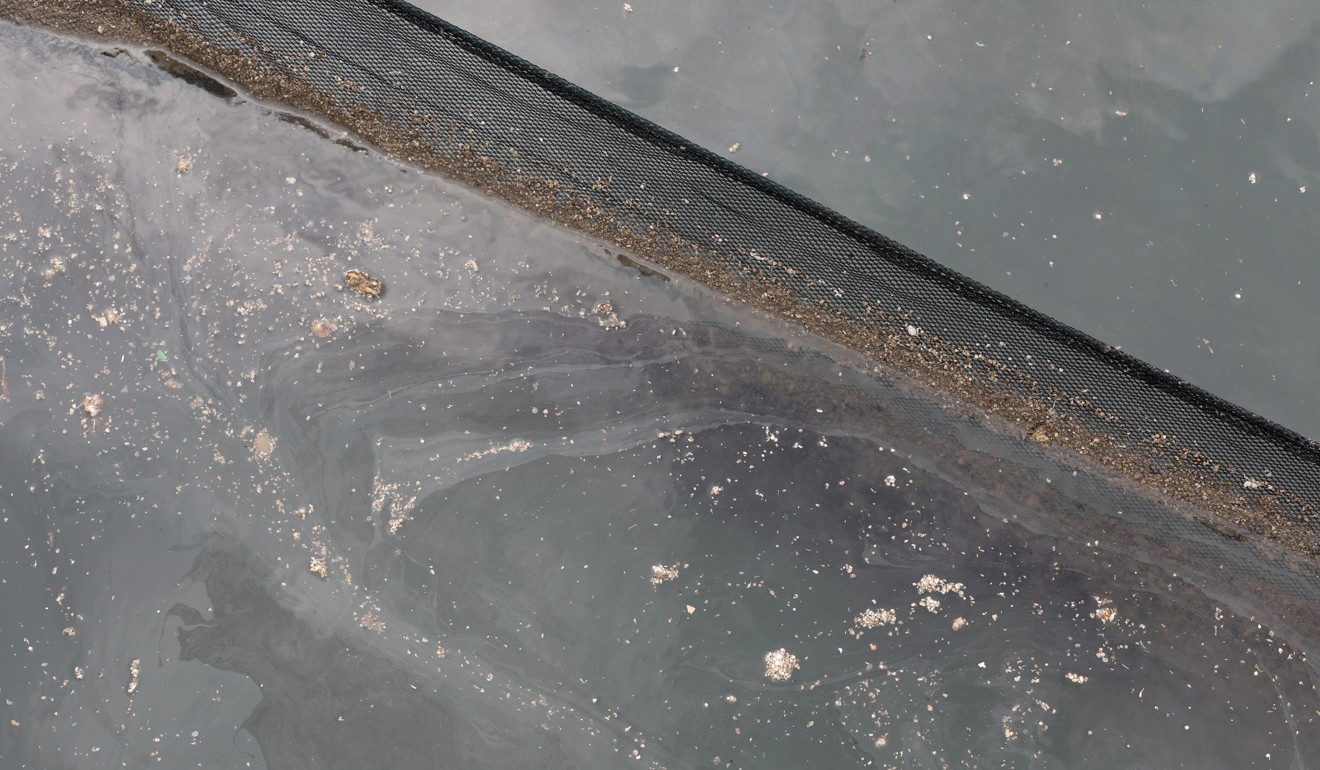
Lies and fears: how a chemical leak in China spilled out of control
- A chemical spill sent 52 residents to hospital, but officials in Fujian province’s biggest city took four days to confirm the event
A panic in Quanzhou, the most populous city in China’s southern Fujian province, following a chemical leak this month shows how the move by government officials to suppress information rather than address a problem can fuel a spiral of fear, rumours and distrust in the authorities.
Nearly 10 days after the leak, no government official has been brought to book for their lapses, while seven people – all from companies involved in the accident – have been arrested.
At more than 8 million people and situated on the coast of the Taiwan Strait, Quanzhou encompasses numerous districts, some urban and industrial, some suburban, some rural. On the morning of November 4, Xiaocuo, a small fishing village within Quanzhou’s borders, woke up to a strong odour.
Fishermen found Meizhou Bay covered by thick yellow oil stains, and rushed to save their fishing rafts. They frantically gathered every container they could from the village – large bowls, buckets and washbasins – to remove the oil stains, as the yellowish layer eroded the plastic foam that supported their fishing rafts and cages.
They did not know what the yellow layer was, or if it was toxic. The local government told villagers the yellow stain was oil. Oil spills are not uncommon in the area; the coastal town is surrounded by oil refineries and chemical plants.
But the villagers found the strong odour odd and had the stain tested. It proved to be a combination of chemicals known as C9 aromatics, a toxic by-product of crude oil produced in the course of refining crude into petrol and diesel. These chemicals can cause skin burns and induce dizziness, nausea and vomiting if inhaled.

Dozens of villagers had their hands burnt trying to remove the stain from their fish farms, said Xiao Xiaomei, a resident of Xiaocuo.
Two fishermen also passed out and fell into the sea after inhaling the chemical – one later contracted pneumonia and was admitted to the local hospital’s intensive care unit.
That’s when the villagers realised that the local government was lying: this was not oil. From then on, any word from the authorities was suspect.
Official conduct in subsequent days only deepened the distrust. Authorities paid local residents to clean up the spill. But one such resident, Liu Longyong, said that "the main goal is to make the sea water appear clean".
7 arrested as fishermen wait for news on chemical spill compensation
The education authorities insisted that school should continue even though children were suffering from nausea and vomiting from the unhealthy air.
It took about four days for the government of Quangang, the Quangzhou district that includes Xiaocuo and other nearby villages, to issue its first official statement about the leak, saying that people were falling ill after inhaling traces of C9 in the air.
Governmental reluctance to share information with citizens in a timely manner is a recurring problem in China.
In 2012, when hundreds of students gathered around government offices in the Sichuan city of Shifang to protest against the construction of a molybdenum copper plant, the authorities tried to suppress the demonstrators instead of communicating with them – resulting in thousands of protesters in the streets for days. Dozens were injured and 27 were arrested. And plans for the plant were scrapped.
In their statement, Quangang officials admitted that, in all, 52 people had been officially treated in hospital for symptoms – including nausea, dizziness or pneumonia – after inhaling the leaked chemicals.
But in those intervening four days, officials did nothing to warn the public of the risks associated with the leak, even as social media was abuzz with postings about the havoc it had unleashed. Videos and pictures posted online by residents suggested that the airborne chemicals were spreading to nearby villages. One post that went viral said more than 400,000 people had been affected.
By this time, the villagers were prepared to believe anything.
“Local media were instructed not to report the leak,” said a journalist at Fujian Daily, a local party mouthpiece. “Four days after the leak on Sunday, we were told that we could report the news – but with a positive spin,” the journalist, who requested anonymity for fear of official reprisal, said.
Ke Qinlan, a resident of Xiaocuo, said that most news reports she read after the release of the Quangang statement were not true. “Full of lies,” as she put it, pointing to a report by state-owned China Environment News saying that all businesses in the village had resumed.
“Have they ever been to our village?” Xiao Lili, a resident, asked angrily, adding that no one was buying fish from the village, and that this economic havoc would continue well into next year.
Villagers unloaded piles of dead fish and other sea creatures — red-spotted grouper, abalone, sea bream, eel, crab and octopus — on the ground in front of the village government building to mark their protest a couple of days after the chemical spill.
“I couldn’t even cry when looking at those dead fish,” said fisherman Xiao Meiru, who lost a year’s earnings when the chemicals contaminated his fish farm. “I have run out of tears.”

Xiao Renhong, a Xiaocuo resident, noted that the official version was that 6.97 tonnes of C9 had been released. “But I think tens of tonnes of C9 were leaked, and I am basing this on the very visible oil stains in the fish farms and nearby seawater,” Xiao said.
This suspicion of the authorities refused to die. Even as the odour began to fade and the environment authorities issued statements that the air quality was fine, rumours were only getting stronger.
Xiao Meiru, the fisherman, said he estimated “somewhere around 200 tonnes” of chemicals had been spilled. “I heard it’s toxic and can cause cancer,” he said, though there was little scientific evidence.
Chen Kaihan, a chemist at the Quanzhou Normal University, said that the type of C9 aromatics leaked into the sea near the village would do little damage – if not directly exposed to skin or inhaled very quickly.
“There are two types of C9, one is “reformed” C9 and the other is obtained through pyrolysis, or decomposition,” Chen said. “Pyrolysis C9 is what’s left in the oil after extracting petrol and diesel, while reformed C9 goes into the production of paint or plastic.
“Reformed C9 is way more toxic than the other variant and even a small amount of the chemicals can be fatal,” he said.

The chemical spilled in Quanzhou, he said, was probably not reformed C9 since such chemicals are usually used at the site itself or close by as input for paint or plastic because they are too dangerous to be transported. “Such chemicals are not transferred by vessels, unlike the chemical that leaked here.”
It will be a while before it is clear just how harmful the chemical leak was. The official test results will take at least another week to be released, according to Quangang authorities.
Meanwhile, Xiaocuo villagers have begun to evacuate the area since they are not sure what the remaining leaked chemical can do to them. And they are unlikely to take the test results at face value even if it gives the all-clear. Some have sent their children away to live with relatives while they stay on in the village to negotiate compensation for the damages they have suffered.
Chen Zhongde, mayor of Nanpu, which includes Xiaocuo, said that an initial compensation plan would be announced as early as this week. But he admitted that the actual disbursement “could take years”.
No matter how angry residents are at local officials, in China the government is the only resort when mishaps such as this chemical leak occur.
“We know they are not telling the truth but what else can we do?” said Xiao Xiaomei, daughter of Xiao Meiru. “We have to count on the government to get our money back.”

